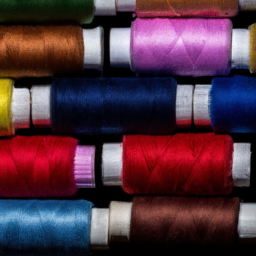

Sewing thread thickness is an important consideration when it comes to choosing the right thread for your sewing projects. The thickness or weight of the sewing thread has a direct impact on the strength, durability, and appearance of your finished stitches. It’s essential to understand the different thread thickness options available and know how to select the most suitable one for your specific needs.
Thread Thickness Measurement
Thread thickness is determined by its diameter or denier. Denier is the unit of measurement used to describe the linear mass density of a thread. It refers to the weight in grams of a 9,000-meter thread. The higher the denier number, the thicker the thread will be.
Thread Thickness Categories
Sewing threads are typically categorized into four main thickness groups:
- Extra Fine Thread (75-100 denier): This type of thread is perfect for delicate fabrics such as silk, chiffon, and lightweight cotton. It produces inconspicuous stitches that don’t overpower the fabric.
- Fine Thread (100-150 denier): Fine threads work well with lightweight to medium-weight fabrics like linen, rayon, and cotton poplin. They are versatile and suitable for a wide variety of sewing projects.
- Medium Thread (150-200 denier): Medium threads are commonly used for medium-weight fabrics such as denim, wool, and twill. They provide strong, durable stitches, making them ideal for garments that require more stability.
- Heavy-Duty Thread (200+ denier): Heavy-duty threads are thicker and stronger, making them suitable for heavyweight fabrics like canvas, leather, and upholstery materials. They are commonly used for upholstery projects, outdoor gear, and other heavy-duty applications.
Choosing the Right Thread Thickness
When choosing the right thread thickness for your sewing project, consider the fabric type, the purpose of the project, and the desired appearance of the finished product. Thicker threads are generally stronger and more visible, while thinner threads create more inconspicuous stitches.

In addition to thickness, also consider the thread material, as different fibers offer varying levels of strength and stretch. Cotton and polyester threads are commonly used and widely available, while nylon and silk threads have specific applications.
Finally, always refer to the manufacturer’s guidelines for recommended thread thickness and needle size for your sewing machine. These recommendations ensure optimal performance and prevent any potential issues during the sewing process.
By understanding and selecting the appropriate sewing thread thickness, you can enhance the quality and longevity of your sewn items. So, next time you embark on a sewing project, take a moment to consider the thread thickness and enjoy the beautiful and durable results it brings!
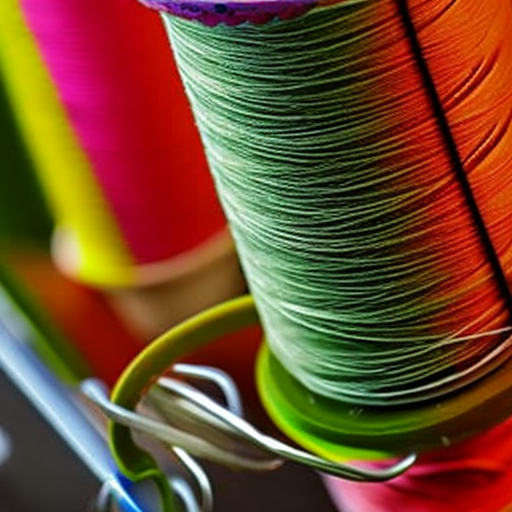
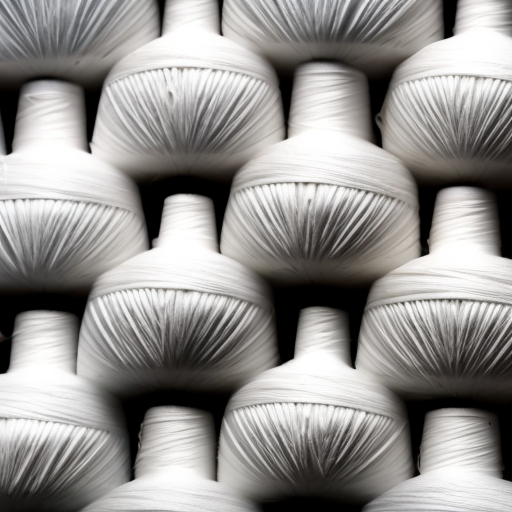
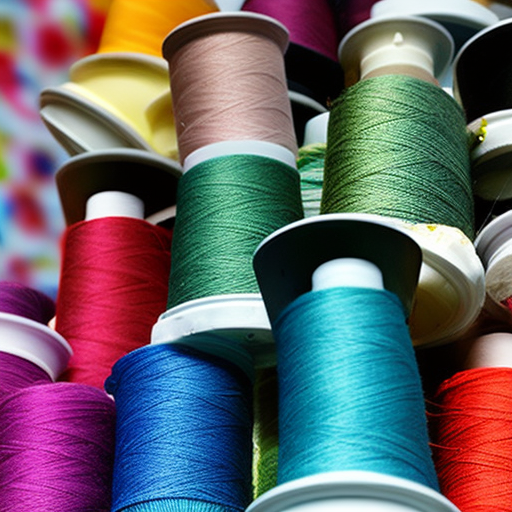
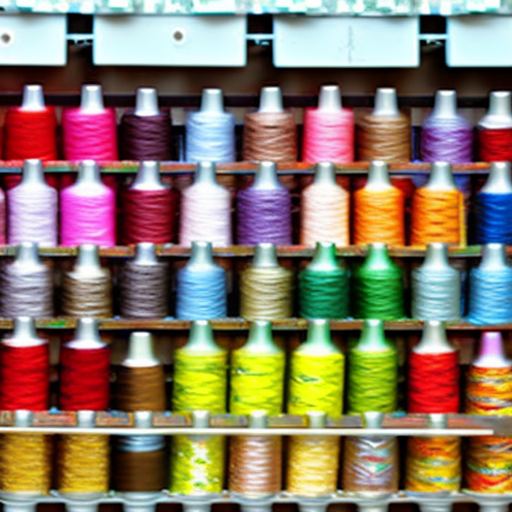

This is a great article. Thanks for the info!
Good to know about thread thickness. Great information! I learned so much about the importance of the thickness of sewing thread and how it can make a difference in the overall look and quality of the project!
Totally agree – knowing the right thread thickness for different materials is essential!
Thanks for sharing this knowledge – it’s really useful!
Learning about thread thickness and the many factors it affects is so important! This article is such a great resource – thank you for posting it!
Super helpful! Having the right thread thickness is paramount to a successful project, so this article is an invaluable resource. Thanks for taking the time to share your knowledge!